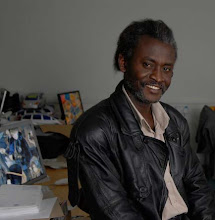In a typical knee jerk reaction the Kenya Government, through the AG, is proposing new rules to control churches and various religious organisations. According to the Nation Newspaper the AG claims that only religious organisations that meet certain conditions, pegged on their “transparency, accountability and spirituality” will be registered. Currently religious institutions are registered as Charities under the Societies Act.
The government is claiming that this will, somehow, protect Kenyans against the antics of “seed” pastors who are accused of “fleecing” Kenyans of cash in exchange for “fake” miracles. Bishop Mark Kariuki comes out accusing the government of interfering with the freedom of worship, Sheikh Ngao warns the government on attempting to keep people from places of worship, and, in an ironic twist, condemns religious leaders using the Bible to impoverish their flock.
One wonders under what auspices and criteria the AG will determine the spirituality of a church, or even what empirical procedures can be used to determine this without creating state favouritism of a particular group of creeds. Our constitution in Chapter Two 8 states clearly “There shall be no State religion.” By declaring certain levels of spirituality as religion and others as not valid isn’t the state declaring it’s favoured religion, or group of religions?
First, there is no empirical method of determining what spirituality is or how to measure this spirituality. In order to set up laws on this the government would have to define spirituality, and given the various methods that religious organisations use to determine this, it would force the government either to prefer one interpretation over another, which would not be constitutional, or to accept all interpretations of spirituality as valid. In the latter case there would thus be no way of determining which church, if any, is not spiritual.
Secondly, the Kanyari saga that is creating this knee jerk reaction by our beloved government is no scam if we go by the tenets of religion. By defining something as religion you immediately remove any standards of proof, proper behaviour, or even what constitutes as false. Yes, Kanyari asked his “flock” to contribute money in exchange for miracles. Mainstream churches have been asking their flock to contribute money in exchange for miracles since they were formed. About the only difference is that Kanyari coached people to show miracles while mainstream churches fail to demonstrate that those miracles have happened, or coach their terms in such a vague manner that all manner of phenomena can be considered miracles. Kanyari is well within his religious rights to create props that enable his flock to have faith, and he is well within his religious rights to ask for money for this. If we accuse him of obtaining money by false pretences then we might as well accuse all religions of doing the same. After all we are yet to have verifiable evidence that any religion is helping people to the afterlife (as they claim), and given that they all claim their paths are the only paths to an afterlife then certainly most, if not all, of the religious organisations are obtaining money by false pretences.
In my opinion the government has very few choices. Either it let’s the religious organisation have free rein to “fleece” the public by promising them things we cannot verify the public has actually received, or it can treat these organisations in exactly the same way it treats other organisations that make money off the public. Given that they provide an intangible product these organisations should declare their earnings and expenditures and pay taxes on these earnings. Accountability and transparency in fiscal matter is about the only thing the government can have authority on. Inasmuch as it protects religious claims from evidential enquiry it should not, now, suddenly subject the claims of one of these organisations to scrutiny without requiring other organisations to, thus, verify their claims. If the public are happy with being sold a product they can only feel, and the government is required to protect this product, then the government cannot turn around and claim it has to investigate this protected product simply because it is packaged in a different manner.
I do not imagine, for the moment, that the government would be willing to make any claims of the validity of these religions, and I doubt it would be in it’s interests to do so, however the public still has a choice as to whether to support the “false” false prophets, “true” false prophets, or any prophet in general, or, alternative, to use critical thought in verifying the claims of these prophets before committing their resources to them. Alas, critical thought has been shown to be greatly lacking in this country.
Monday, November 10, 2014
AG cannot honestly legislate spirituality.
Labels:
Belief,
Christianity,
Critical Thought,
Laws of Kenya,
Religion
Subscribe to:
Post Comments (Atom)




No comments:
Post a Comment